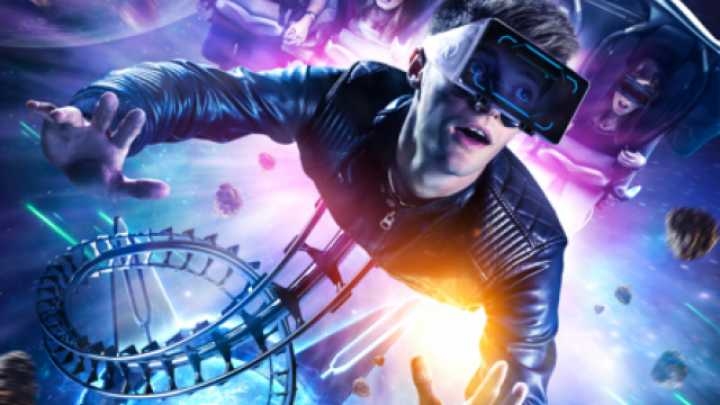
Innovative Theme Parks Pursue the Virtual Frontier
The future is now as virtual reality has finally reached the quality and usability levels imagined by Philip Dick in his famous sci-fi novel Do Androids Dream of Electric Sheep, published in 1968. Countless books and movies have portrayed virtual reality as the ultimate platform for visualization, communication, and entertainment. Hindered by timely technological limits, virtual reality couldn’t make the jump from novelty to usability until now. Thanks to advancements made by global technological leaders Oculus and Samsung, virtual reality (VR) tech is affordable, compact, and available.
In today’s fast-paced world where businesses have to keep up with the tech-evolution, the entertainment industry isn’t falling behind. Immersive movie trailers, video games, and travel can be experienced within a VR world, and theme parks are integrating VR gear into rides for the latest thrills.
Theme Park VR Benefits
When Walt Disney World’s Magic Kingdom opened its gates in 1971, it had invested in cutting-edge rides and experiences that would thrill guests for years to come before any updates were necessary. This practice was common among other theme parks, like SeaWorld and Six Flags, who chose to invest in innovative rides that would drive attendance. As time passed, however, technology began outpacing their ability to renovate or replace rides to meet expectations. By the time they had replaced a ride, sometimes to the chagrin of nostalgic guests, the new ride would only have a little time before it was outmoded as well. Costs rose and expectations fell as entertainment experts searched for the solution.
VR tech looks to be that solution. Instead of renovating or replacing rides, which cost time, money, and popularity, electrical engineers are re-imagining rides through virtual reality. It’s cost-effective, easily-equipped, and offers guests a fresh take on a beloved ride. It can be used on intense rollercoasters, like on Six Flag’s Superman and SeaWorld’s Kraken, or within physical environments to recreate “hyper-reality” experiences like Disney’s upcoming Star Wars: Secrets of the Empire.
Virtual Reality’s Flawless Integration
Now open and receiving visitors, Six Flags New England’s Superman and SeaWorld Orlando’s Kraken high-thrill rollercoasters offer new adrenaline-pumping experiences. Guests strap on VR headgear that transports them to downtown Metropolis or the lost city of Atlantis, respectively.
Instead of simply experiencing a rollercoaster, guests are immersed in a storyline that perfectly syncs with the rollercoaster’s thrills. They defend the city with Superman or avoid the Kraken’s tentacles as they spin, flip, and race along the coaster’s familiar track with a brand-new perspective. Because it is precisely synced to the rollercoaster track, riders shouldn’t experience any nausea. Furthermore, VR gear is sanitized before each use and secured so no accidents may occur due to loose equipment. Some argue the thrill of the real-life experience is lost, but theme park engineers have assured the VR world is a positive game-changer. If riders truly don’t want to participate in the VR experience, they can still ride sans headgear.
Virtual Reality’s Future
Soon to face its debut, the Star Wars: Secret of the Empire experience takes VR implementation to a new level. Disney, a pioneer of innovative technology created by their infamous Imagineers, wants to put guests in the virtual world itself. Working with The VOID and ILMxLAB, creators of NYC’s Ghostbusters: Dimension game, Disney is going to merge actual environments with virtual reality. Guests will wear VR headgear while interacting with the world around them, improving fun and wellness while also creating a unique immersive experience. They will encounter landscapes and storylines as never-before, taking an active role in popular stories and changing how people experience entertainment.
Recent technological advancements are in the fast lane, which means even these innovative VR experiences might soon be obsolete. Theme parks have to stay ahead of the curve, and VR is the new entertainment frontier. Instead of replacing rides, they can reinvent them through some headgear and software multiple times to save money and thrill riders.
